Beloved star of stage and screen, Dale Soules, has lived a life in several acts.
After graduating high school in New Jersey, the lesbian actor and activist arrived in New York City in the 1960s where she quickly earned her stripes as a stage manager and backstage hand for several off-Broadway shows, including Arthur Miller's A View From the Bridge and Mart Crowley's The Boys in the Band.
It was while she was working as an electrician for The Boys in the Band in 1968 that Soules saw and began auditioning for the original Broadway production of "Hair". In 1970 two years and 24 auditions later, she landed the role of Crissy.
Audiences quickly got to know her not only as an accomplished actress but also a staunch activist, as she and the cast took to the streets to protest the Vietnam War.
These days, Soules is perhaps best known by queer viewers for playing Frieda Berlin (earning 3 SAG awards) on Netflix's Orange is the New Black, which aired it's seventh and final season last year. The show changed the landscape of television forever, virtually defining what we know as "streaming" and "binge-worthy" programing.
Orange is the New Black was lauded for bringing visibility to LGBTQ+ characters, most notably Laverne Cox's trailblazing role of Sophia Burset. It was a natural fit for Soules, who is not a murderer in real life but she does share several characteristics with the social outcast, trying to protect herself from danger and prejudice, and survive. Like Frieda, Dale's unique path was forged by the many intersections that shape her life.
Growing up, her father, who had returned from World War ll a mental casualty spent time in prison "tried to block out his suffering with alcohol which caused my mother and I to suffer," says Soules. Her parents separated and her mother went to work in a factory to support them. Soules then went to live with her Grandmother in Greenwood Lake NJ, whose house had no running water.
"We carried water from a brook that ran by the side fo the house," Soules tells The Advocate of those years living in poverty, explaining there were three things that saved her: the love she had from her family ,the escapism of the nearby woods, and the theater.
It was difficult. We'd have to make decisions between putting gas in the car for my uncle to go to work or having heat in the house at night," she says. The real problem however, was the cruelty she received from kids at school. "My clothes were behind the times. I didn't have running water, and most of the other kids' water came out of taps. So, if they ever stopped to consider, 'How did Dale get clean?' Their little minds could not make the leap and they assumed I was dirty and they moved away from me. That was what made not having money difficult- not not having money."
As Soules grew into her teens, she realized she had feelings for women and grappled with her own identity against the backdrop of poverty. That struggle took her into a deep depression.
"I could not imagine how I was going to operate in this world, having feelings for women, which was clearly not an OK thing," she remembers. "The very best way being LGBTQ+ was looked at in those times, late 50s to early 70s, was that it was an illness. That's sort of the most compelling thing in your life at that point, to connect. It's biologically compelling, it's psychologically compelling, you want to connect. And so, I would worry. If I am attracted to someone and I love them and want to be connected to them, how could I ever do that, knowing that at best I have an illness that I'm passing? That Gordian knot I could not unravel and I was really suicidal."
Life as a Mountain William (the proper term used to describe immigrants from England that settled in New Jersey and the Carolinas, according to Dale's grandmother, 'only ignorant people say 'hillbilly') was hard but it ultimately shaped Soules's desire to tell stories that raise social consciousness.
While still in high school, the young Soules quickly realized how her talents could be used to change people's minds and hearts. After being cast in a production of Oklahoma! thanks to the mentorship of two excellent teachers, her peers started treating her differently.
We started rehearsals after school and I saw these kids who had walked past me in the hall with their noses high in the air, literally moving away from me on the gym floor," she says. "Suddenly, they were treating me like an equal...The criteria for acceptance changed from, how much money did you have, or where did you live to: What could you contribute to this cooperative effort? I saw making theater change small minded, mean-spirited, unkind people into cooperative human beings. That's what made me want to be in the theater. That was it."
Soules pictured above in the Broadway cast of Hair
After graduating high school in 1965, Soules moved toward freedom and out of 'stealth' living to the Big Apple, where she became immersed into the queer scene. "the minute' she stepped off the bus. From there on, fate seemed to always place her in the right place at the right time.
"I feel like Forrest Gump." She quips, referencing the fact that she's personally been part of several major milestones in LGBTQ+ history -- as part of the original productions of The Boys in the Band, Hair, and Orange is the New Black, but perhaps most notably, witnessing the Stonewall uprising firsthand.
On the night of June 27th, 1969, Soules, who lived a couple of blocks from the Stonewall Inn, had gone out to fetch coffee for a friend who was helping her with a work project.
'I see this whole scene going on across street in front of the Stonewall, "she remembers. "There's cop cars, there's sirens, there's a paddy wagon, there's a line of people--some of them dressed in women's clothes, some of them are transgender. I went over and it was late, and they all got their arms linked. And so, I went over and I said, 'What's going on?" "They said, 'Well there was a raid and some of the cops are locked inside and we're outside," she continues "Then they said, 'Would you come and stand with us because if 'real women' are standing with us, it's less likely they'll attack us. " And I laughingly said, 'Well, it's highly questionable as to whether I'm a real woman right? Yes of course I'll stand with you.' So, I got in line and I stood with them. I remember a kick line at one point. I must have been there maybe 45 minutes and then suddenly I'm like, Oh my God, my friend....is sitting back in my apartment. I have to go.'
A year later, on June 28th, 1970, the day of the first Liberation March, Soules and her then-girlfriend paid a visit to her mother, who at that point had come out to Soules as a lesbian.
"My mother said, 'If you're going to that march, please be careful. There are a lot of great people out there but there are dangerous people out there too. I don't want you to get hurt or arrested."
"My mom and her lover presented themselves as sisters because that was the only way they could navigate their society. You could still be fired or lose custody of your child or be jailed. But she knew we had to go for freedom's sake. She and her lover came to visit me at my first apartment, a disaster of a place. The two of them were standing in the other room and I heard her lover say, 'Oh we can't leave her here.' And my mother said, 'It's all right. She knows where I am. She knows she can always call me. This is what she needs to do.' She was so smart that way. Mom understood that the freedom to be myself was more important than the danger and discomfort. She had to live 'stealth' she understood the price."
Now a true pioneer of stage and screen, Soules continues to be a mentor to young artists in the New York theater scene. As the pandemic wreaked havoc on Broadway, causing theaters to close until the foreseeable future, she remains confident the art form will stay alive somehow. It has to.
"It will change. I don't think there's any question in my mind that it will change.", she says. "I don't think it's going to be entirely virtual because then it's not theater anymore. But I think there are new things to be discovered using the virtual world in a new kind of way, yet to be discovered. And there are lots of discussions about using outdoor spaces. That's already being done in some theaters that have a large enough outdoor space to socially distance properly.
"Storytelling will always survive," she continues. "I feel like we come in with that desire. Children want you to tell them a story. They don't ask you to teach them how to use a fork and knife. They don't ask you to teach them how to go to the bathroom on a toilet. They don't. They don't ask you to say those things to them, but they will say, 'Tell me a story.' And when you tell them, they say, 'Tell me again!' It seems that we come in with an innate desire and I think that is never going to go away."
A true gypsy, Soules understands the plight young actors are currently in, given that restaurants and bars (which many actors depend on as their day jobs) have been closed. And she's giving back in simple ways, like we all can. "I happen to be at a moment in my life where my next meal is not dependent upon my next job, because of my age I have a pension, so that different," she says, "I'm able to help."
"It's really important to reach out to LGBTQ+ youth and those in potentially violent environments, who are isolated right now and perhaps surrounded by people who do not understand their sexuality or their sexual questioning, or judge them to be sick or otherwise unfit." She adds. "Without the lifelines that were thrown to me when I could not see a way for me to function in the world, without acceptance, care and help from more experienced human beings, I would surely not have made it out of my very early teens."
"It is so important for those of us who have been helped, and are now able to help, to get lifelines out there. It so easy to drown in the cold waters of isolation and non-acceptance. We need you. I promise it does get better, but you need help to take the steps toward health, acceptance, and freedom -- especially now."
"Prejudice is a deadly virus as surely as COVID-19 is. For help connecting to the LGBTQ+ community contact mentoring.org/pride," she adds. "Love and thanks to all who contributed to my feeling like a worthy human being, it really saved my life. I know there are so many of you out there who do not feel worthy, But you are and I want to reach you, meet you and possible mentor you. We all have a lot to learn from each other. "
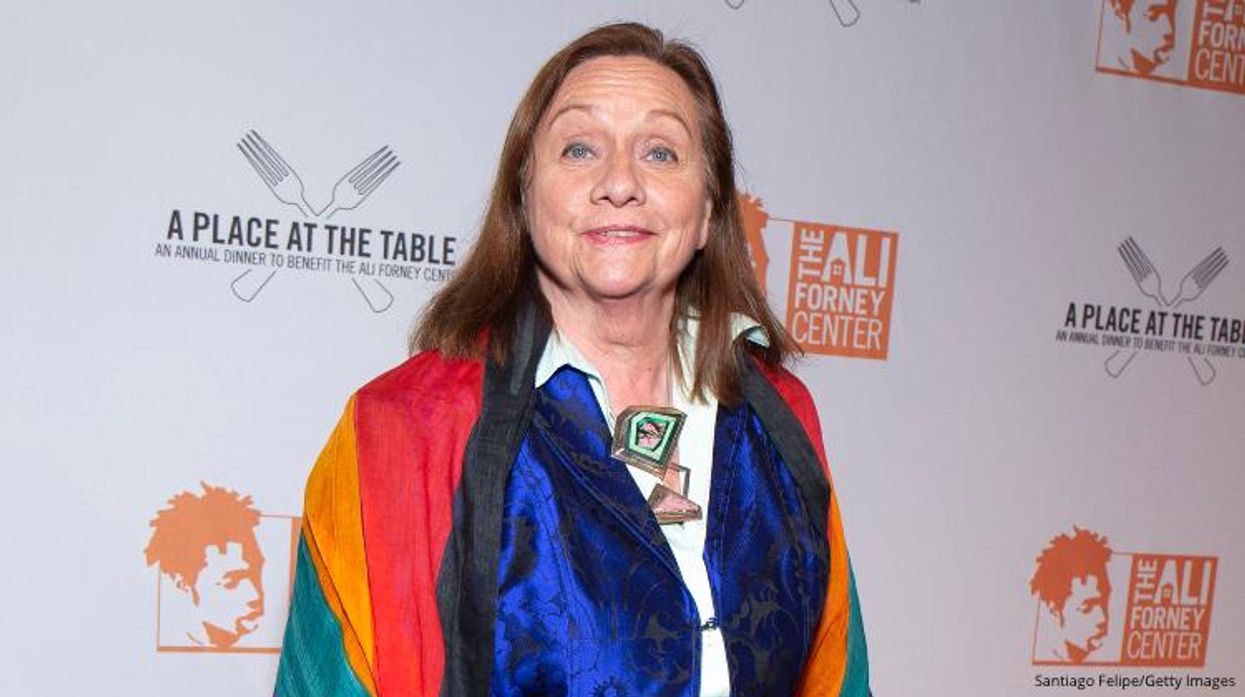
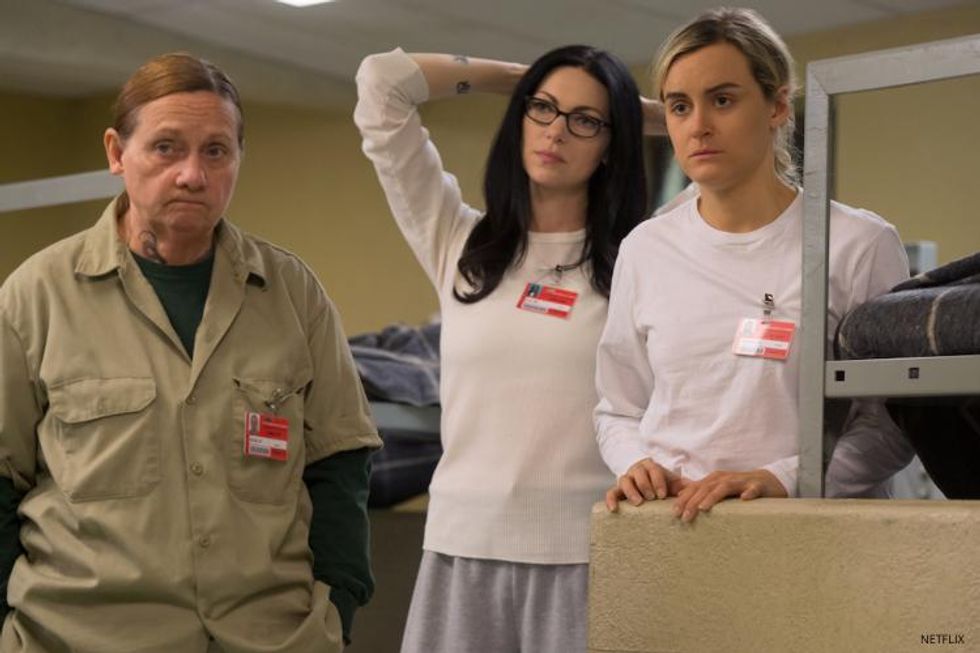
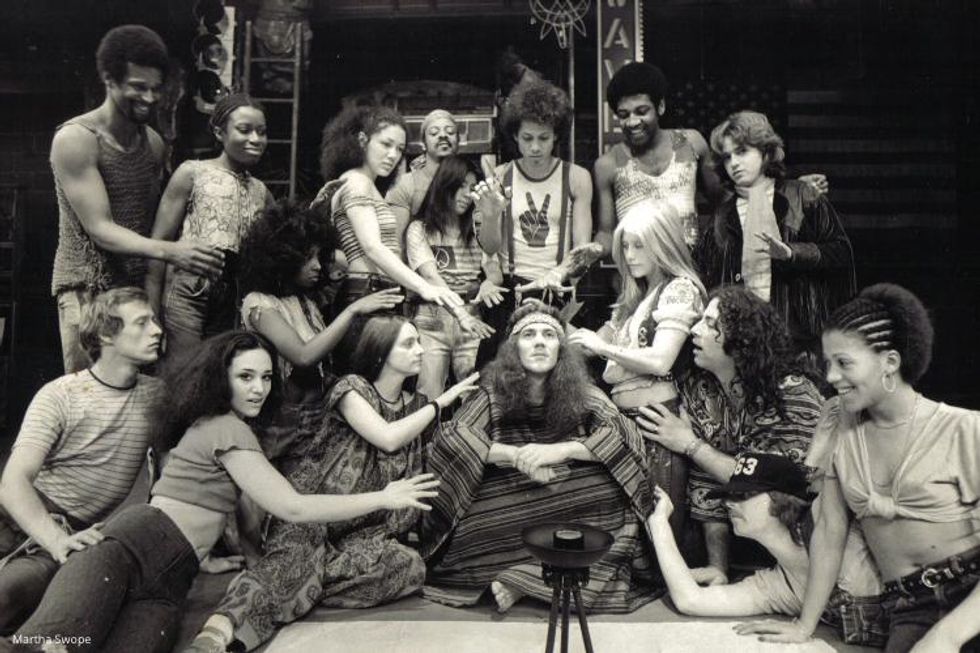






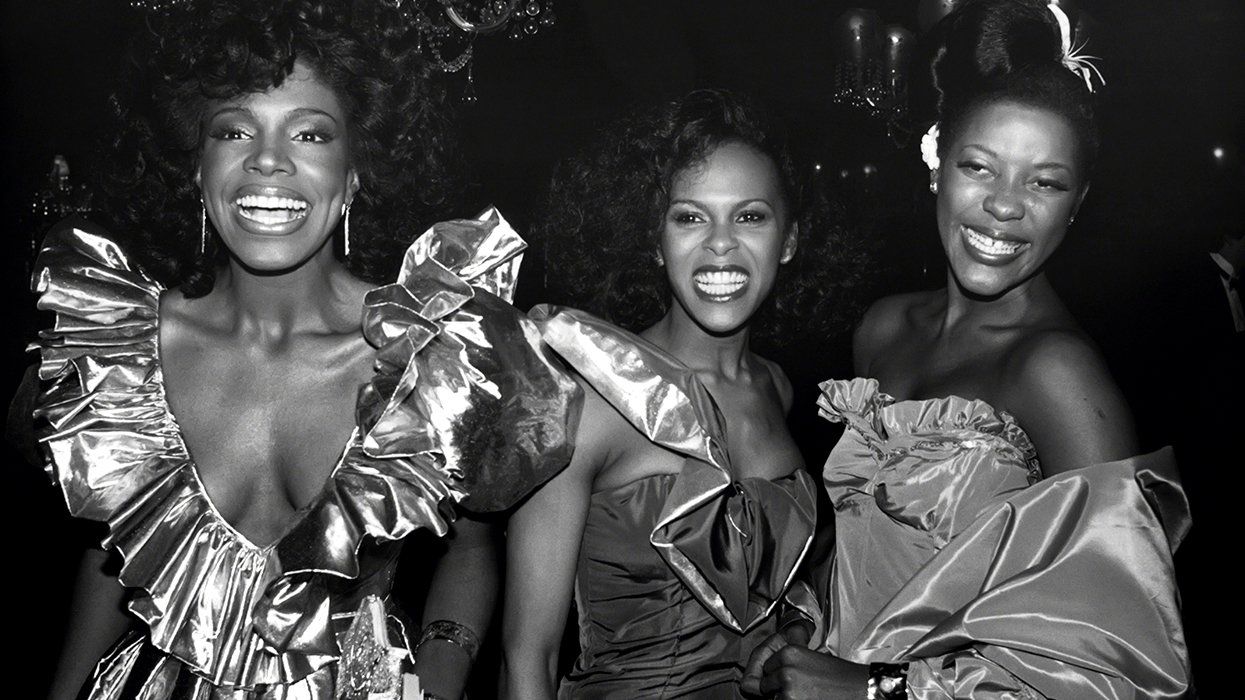

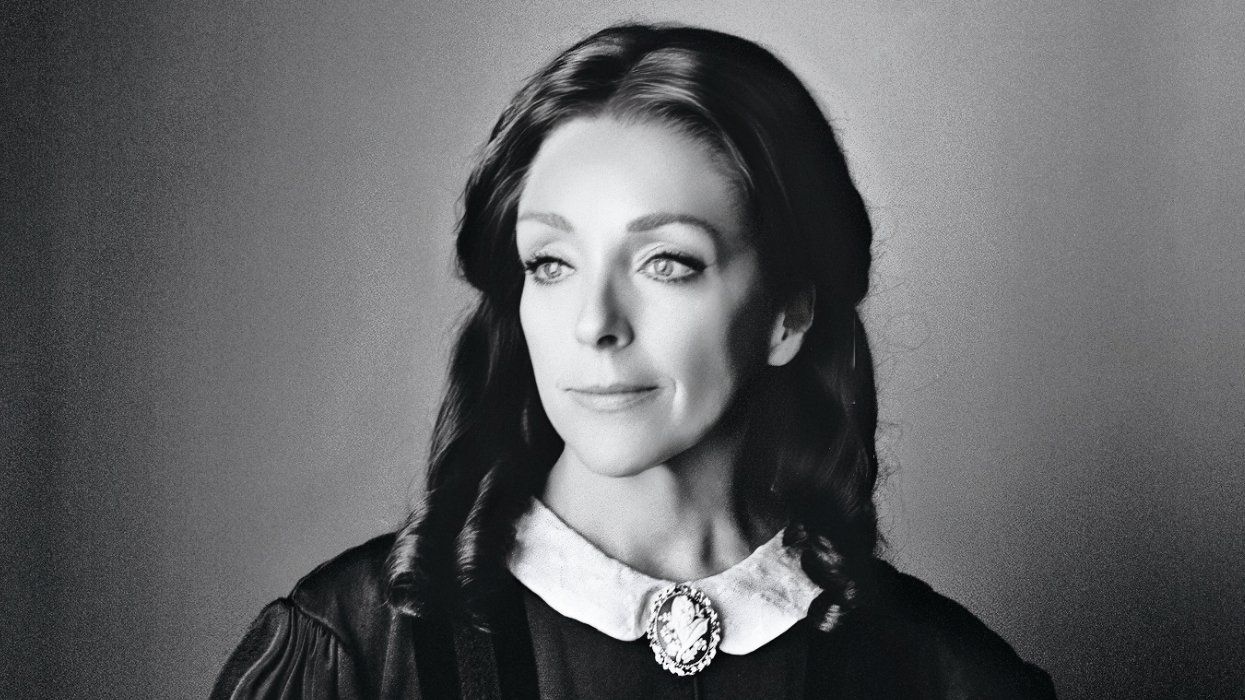





Charlie Kirk DID say stoning gay people was the 'perfect law' — and these other heinous quotes
These are some of his worst comments about LGBTQ+ people made by Charlie Kirk.